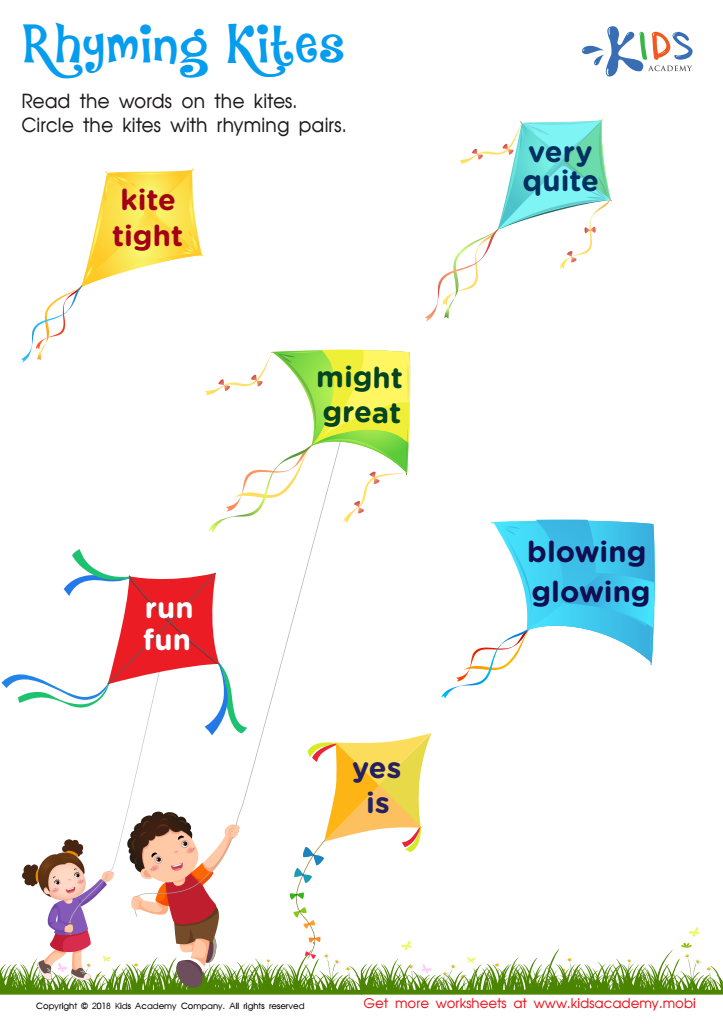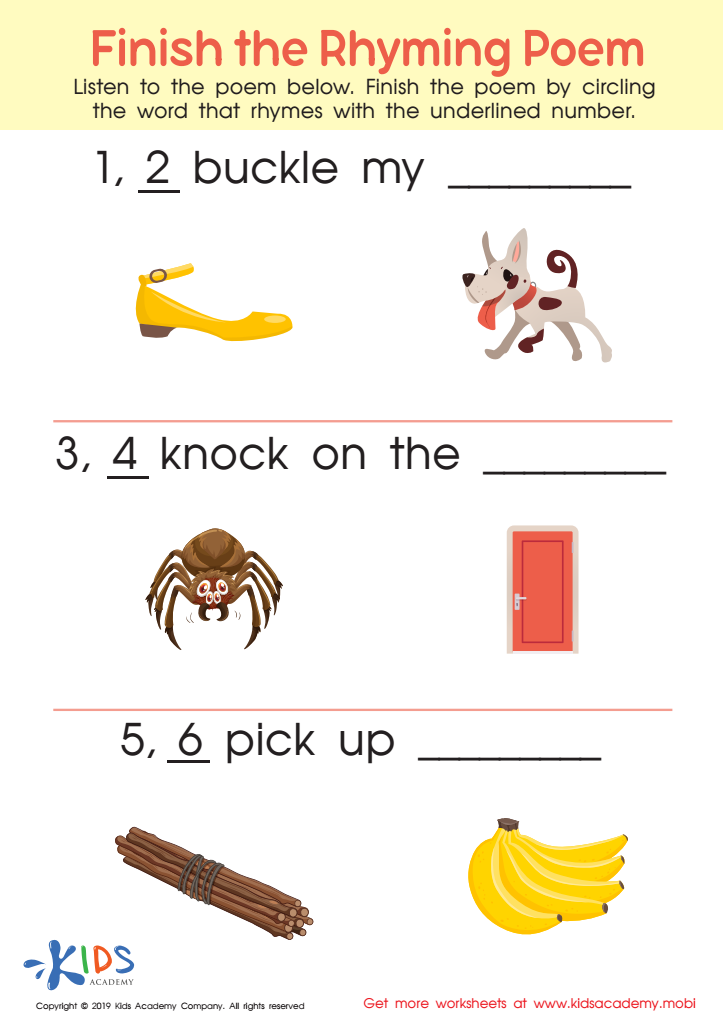Rhyming skills Normal Reading Worksheets for Ages 3-8
3 filtered results
-
From - To
Enhance your child's reading journey with our Rhyming Skills Worksheets, designed for ages 3-8! Our engaging, interactive worksheets foster essential literacy skills through fun rhyming activities. Children will learn to identify rhyming words, complete rhymes, and create their own, all while developing phonemic awareness. Each worksheet aims to make learning enjoyable, helping young learners build confidence in their reading abilities. Perfect for home or classroom use, these printables cater to diverse learning styles, ensuring that every child can participate and thrive. Start your child’s adventure in mastering rhyming skills today and watch their love for reading blossom!


Rhymes in Poems Worksheet


Rhyming Kites Worksheet


Finish Rhyming Poem Worksheet
Rhyming skills are a crucial aspect of early literacy development for children aged 3-8. For parents and teachers, fostering these skills can significantly enhance a child's reading and writing abilities. Rhyming engages children with the sounds and rhythms of language, laying the groundwork for phonemic awareness, which is the ability to recognize and manipulate sounds in words. This skill is essential for decoding and spelling, making it a fundamental step towards reading fluency.
Moreover, rhyming promotes vocabulary expansion and language comprehension. Through engaging rhyming books and games, children learn new words in context, which aids retention and understanding. Additionally, rhyming fosters a love for language and literacy, as it often incorporates playful sounds and encourages creative expression.
Involving children in rhyming activities also strengthens their listening and memory skills. By participating in nursery rhymes and songs, children develop an ear for how words sound together, enhancing their ability to predict and infer meanings when reading.
Ultimately, a strong foundation in rhyming supports not only reading readiness but also strengthens cognitive development, social interaction, and imagination, making it a vital educational focus during these formative years. Parents and teachers should prioritize this skill to ensure a well-rounded, effective reading experience.

 Assign to My Students
Assign to My Students


















